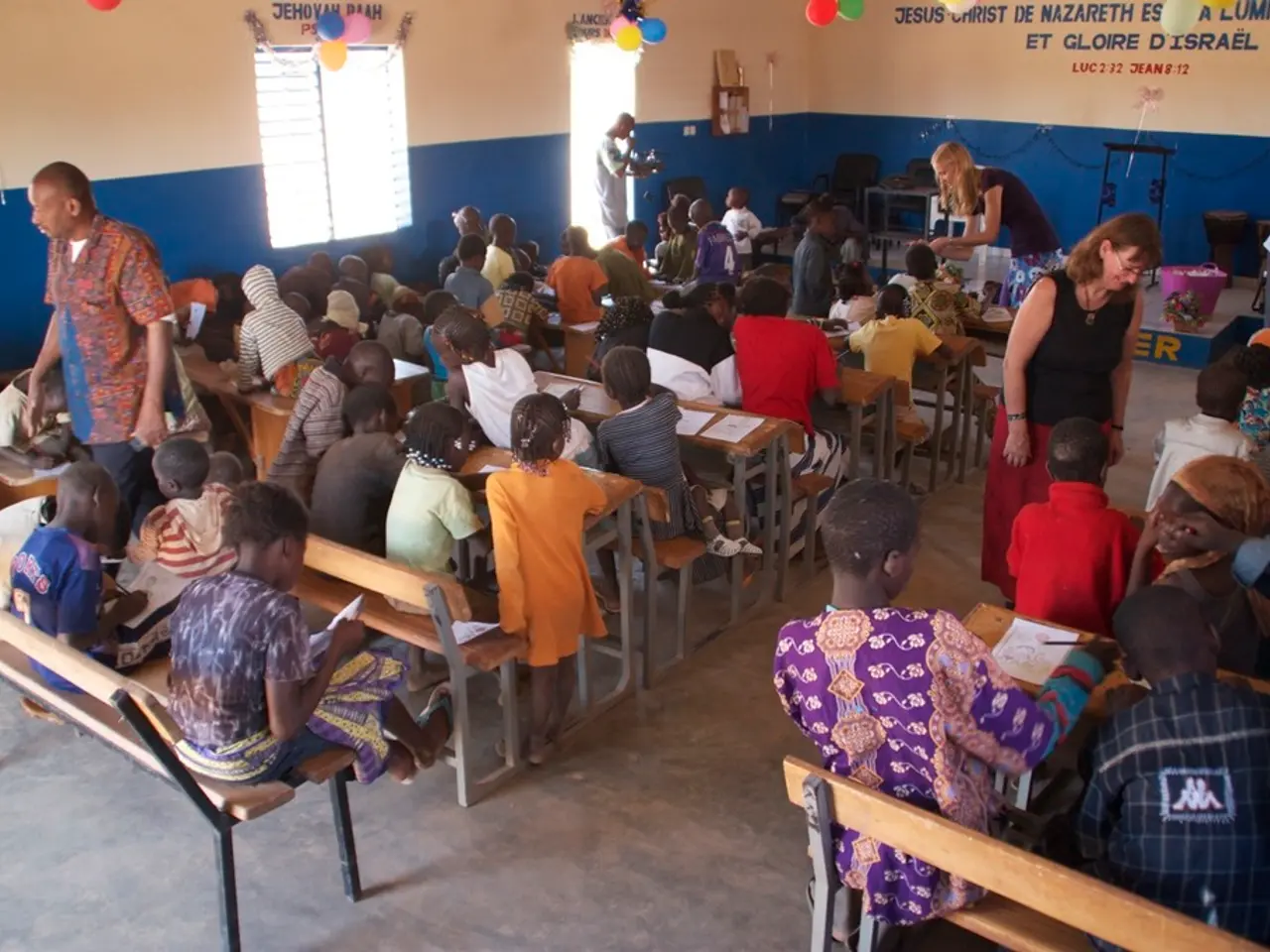Government Considerations for Admitting Children from Middle Eastern Regions
In a remarkable show of solidarity, the cities of Hanover and Düsseldorf have announced their intent to provide a safe haven for children from the Gaza Strip and Israel who are in need of protection or are traumatized.
Hanover, led by Mayor Clara Gerlach (Greens), has already made preparations, with up to 20 emergency placement places available for these children. Düsseldorf, under Mayor Stephan Keller (CDU), has expressed support for the initiative, although no specific number of children has been announced yet as discussions with partners are ongoing.
Initial talks have taken place in Düsseldorf, including with the Jewish community and the circle of Düsseldorf Muslims. The city is exploring the possibilities of realizing this project in the coming week.
However, the German federal government faces several challenges in enabling these cities to take in vulnerable or traumatized children.
One of the main obstacles is expanding social welfare and child protection capacities. Germany is already grappling with social challenges related to poverty and homelessness, particularly among children. The influx of children from conflict zones would put pressure on social services, shelters, and welfare systems that would need to expand or adapt.
Immigration and skilled worker shortages are another concern. While the German government acknowledges the need for immigration to address skilled labor shortages, net immigration rates have decreased significantly. Adjusting immigration policies to allow humanitarian intake specifically for children from Gaza and Israel might require legislative and bureaucratic measures.
Germany’s aging population and low fertility rate mean that immigration is crucial for population stability. However, raising the population through immigration increases demands on social infrastructure.
Coordination between federal and local authorities is also complex due to Germany’s federal system. While Hanover and Düsseldorf have expressed willingness to accept children, the federal government must provide legal, financial, and logistical support for such initiatives.
Authorities must also address the psychological, cultural, and medical needs of traumatized children, requiring specialized support systems. Political considerations around the Israel-Gaza conflict may influence public opinion and policy decisions regarding refugee intake.
The Federal Ministry of the Interior has expressed caution regarding the announcements by Hanover and Düsseldorf, citing factors such as security situation, possibility of leaving, and others. The ministry's focus, as stated by a spokesman, is on expanding medical aid on site and in the region.
Other cities are reportedly interested in participating in similar programs, aligning with the intentions of Hanover and Düsseldorf. The statement was issued by the city administrations of both cities, signed by Mayors Keller, Gerlach, and mayoral candidate Fabian Zachel (SPD).
As discussions continue and plans take shape, the hope is that these cities can provide a safe and supportive environment for children in need, offering them a chance to heal and rebuild their lives.
- The cities of Hanover and Düsseldorf are focusing on providing mental health support for the traumatized children from Gaza Strip and Israel, due to the growing need for health-and-wellness services in these challenging times.
- The German government is facing a challenge in expanding healthcare services and child protection policies to cater to the influx of traumatized children, as it also grapples with healthcare issues related to its aging population and low fertility rate.
- To address this, policy-and-legislation changes might be required to accommodate immigration for the specific humanitarian intake of children from conflict zones, aiming to alleviate the skilled worker shortages and population stagnation.
- In the face of political considerations and public opinion surrounding the Israel-Gaza conflict, the Federal Ministry of the Interior is pursuing strategies like increasing medical aid both on-site and in the region, rather than focusing on refugee intake at this time.




